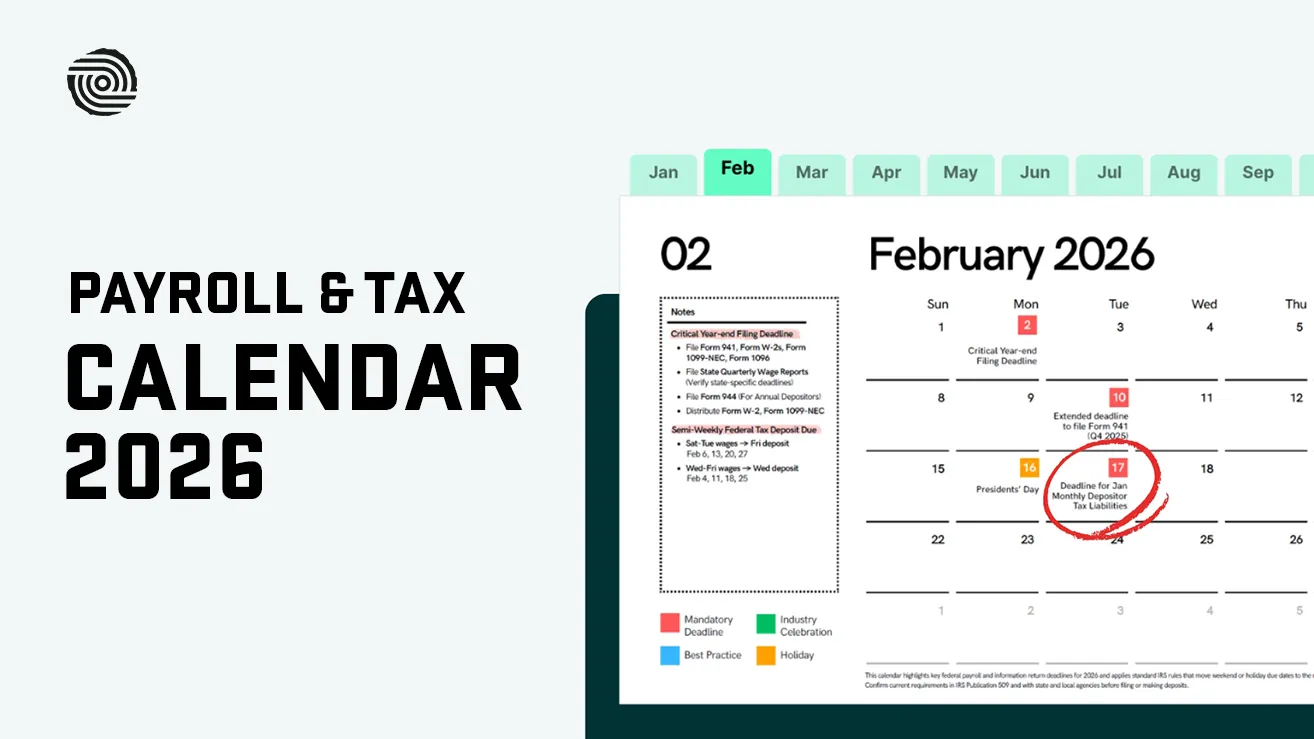Data Analytics in Construction: Enhancing Efficiency and Accuracy in 2025

Data has become the driving force behind innovation and success in virtually every industry, and construction is no exception. As projects grow increasingly complex and competition intensifies, construction firms are turning to data analytics to gain a competitive edge. However, the journey to becoming a truly data-driven organization is fraught with challenges, from integrating disparate data sources to fostering a culture that embraces data-driven decision-making. Overcoming these obstacles is crucial for unlocking the full potential of construction analytics and driving efficiency, productivity, and profitability.
The Data Dilemma in Construction Data Analytics
One of the primary challenges in construction analytics is the sheer volume and complexity of data generated throughout the project lifecycle. From design plans and material inventories to project schedules and safety records, construction firms must contend with a deluge of information from multiple sources. Integrating these disparate data sets into a cohesive and accessible format is a daunting task, but one that is essential for effective decision-making.
Equally daunting is the challenge of fostering a data-driven culture within the organization. Construction has traditionally been a heavily experience-based industry, with decisions often made based on gut instinct and past practices. Shifting this mindset to embrace data-driven decision-making requires a concerted effort to upskill employees and secure buy-in at all levels, from the field crews to the executive suite.
The Rewards of Data Analytics in Construction
Despite these challenges, the rewards of successful construction analytics implementation are numerous and far-reaching. By harnessing the power of data, firms can optimize resource allocation, identify potential risks and inefficiencies, and make informed decisions that drive cost savings and boost project efficiency.
Moreover, advanced analytics techniques, such as predictive modeling and machine learning, can provide a powerful competitive edge. By analyzing historical data and identifying patterns, construction firms can anticipate future trends and make proactive decisions that enable them to stay ahead of the curve.
Becoming a Data-Driven Firm with Construction Data Analytics
To truly unleash the power of construction analytics, firms must take a multi-pronged approach. First, they must invest in robust data infrastructure, including effective data integration and governance strategies, as well as accessible and scalable data storage solutions. This may involve migrating to cloud-based platforms or implementing cutting-edge data management tools.
Equally important is cultivating a data-driven culture within the organization. This requires comprehensive training and upskilling initiatives to equip employees with the necessary data literacy skills. Effective communication and change management strategies are also crucial to ensure a smooth transition and secure buy-in across all levels of the organization.
Finally, construction firms must leverage cutting-edge analytics tools to derive maximum value from their data. This includes business intelligence and data visualization platforms for generating actionable insights, as well as artificial intelligence and machine learning technologies for advanced predictive modeling and forecasting.
The Advancing Data Analytics in Construction Conference
The Advancing Construction Analytics 2025 was well-attended by industry experts and here are its key takeaways -
What You Missed:
- The 2025 agenda was packed with technical and strategic sessions.
- Introduced innovative practices and showcased tangible results from analytics initiatives.
- Provided a comprehensive roadmap for navigating the analytics landscape, from adoption to execution.
- The event served as a 'central hub' for attendees to map out their current position and future goals.
What Attendees Achieved in 2025:
- Secured Buy-in & Created a Data Fluent Organization:
- Gained best practices and strategies to effectively communicate analytics goals to leadership.
- Learned to train employees on the importance of data to ensure integrity and enthusiasm.
- Gained insights from successful case studies on achieving analytics adoption.
- Acquired knowledge to confidently pilot their own methods.
- Drove Accurate Decision-Making with AI & Predictive Analytics:
- Explored AI tools used by leading companies to enhance profitability and project deliverables.
- Learned how machine learning algorithms optimize schedules.
- Harnessed generative AI tools to automate workflows.
- Optimized Data Integration & Improved Data Integrity:
- Gained technical insights into data cleaning, standardizing collection, and connecting disparate systems.
- Learned actionable strategies through practical case studies to optimize data processes.
- Improved the quality and accuracy of their current models, enabling predictive analytics.
- Leveraged Project Data to Drive Profitable Business Decisions:
- Discovered the business applications of data at both project and corporate levels.
- Learned to link project reporting with overall company health.
- Mastered building effective dashboards for compliance, budget management, and resource allocation.
Upcoming Events on Construction Data Analytics and Insights
Couldn't make it to the Advancing Construction Analytics conference this year? Don't worry - there are plenty more opportunities to dive into the world of construction data and insights. Check out these upcoming events focused on analytics in the construction industry.
Frequently Asked Questions
What is construction analytics?
Construction analytics refers to the use of data analysis techniques to gain insights from various sources of information in construction projects, aiming to improve decision-making, efficiency, and profitability.
Why is data analytics important in the construction industry?
Data analytics helps construction firms optimize resource allocation, identify risks and inefficiencies, make informed decisions, and gain a competitive edge in an increasingly complex industry.
What are the main challenges in implementing construction analytics? Key challenges include integrating disparate data sources, fostering a data-driven culture, ensuring data quality and integrity, and selecting the right analytics tools and technologies.
How can construction firms overcome resistance to adopting data-driven practices?
Firms can overcome resistance by providing comprehensive training, demonstrating the value of analytics through pilot projects, securing buy-in from leadership, and gradually implementing changes with clear communication.
What types of data are typically used in construction analytics? Construction analytics can utilize various data types, including design plans, material inventories, project schedules, safety records, equipment performance data, and financial information.
How can predictive analytics benefit construction projects?
Predictive analytics can help anticipate project delays, forecast material needs, optimize resource allocation, identify potential safety hazards, and improve overall project planning and execution.
What skills are needed to implement and use construction analytics effectively?
Key skills include data analysis, statistical modeling, programming (e.g., Python or R), data visualization, and domain knowledge of construction processes and challenges.
How can small to medium-sized construction firms get started with analytics?
Smaller firms can start by identifying key areas for improvement, investing in basic data collection and analysis tools, training staff on data literacy, and gradually expanding their analytics capabilities as they see results.
What are some examples of successful applications of analytics in construction?
Successful applications include optimizing project schedules, improving equipment maintenance and utilization, enhancing safety protocols through risk analysis, and streamlining supply chain management.
How does construction analytics relate to Building Information Modeling (BIM)?Construction analytics can leverage data from BIM to provide deeper insights into project design, construction processes, and lifecycle management, enhancing the overall value of BIM implementation.
Lorem ipsum dolor sit amet, consectetur adipiscing elit. Donec ullamcorper mattis lorem non. Ultrices praesent amet ipsum justo massa. Eu dolor aliquet risus gravida nunc at feugiat consequat purus. Non massa enim vitae duis mattis. Vel in ultricies vel fringilla.
Introduction
Mi tincidunt elit, id quisque ligula ac diam, amet. Vel etiam suspendisse morbi eleifend faucibus eget vestibulum felis. Dictum quis montes, sit sit. Tellus aliquam enim urna, etiam. Mauris posuere vulputate arcu amet, vitae nisi, tellus tincidunt. At feugiat sapien varius id.
Eget quis mi enim, leo lacinia pharetra, semper. Eget in volutpat mollis at volutpat lectus velit, sed auctor. Porttitor fames arcu quis fusce augue enim. Quis at habitant diam at. Suscipit tristique risus, at donec. In turpis vel et quam imperdiet. Ipsum molestie aliquet sodales id est ac volutpat.

Ipsum sit mattis nulla quam nulla. Gravida id gravida ac enim mauris id. Non pellentesque congue eget consectetur turpis. Sapien, dictum molestie sem tempor. Diam elit, orci, tincidunt aenean tempus. Quis velit eget ut tortor tellus. Sed vel, congue felis elit erat nam nibh orci.
Dolor enim eu tortor urna sed duis nulla. Aliquam vestibulum, nulla odio nisl vitae. In aliquet pellentesque aenean hac vestibulum turpis mi bibendum diam. Tempor integer aliquam in vitae malesuada fringilla.
Elit nisi in eleifend sed nisi. Pulvinar at orci, proin imperdiet commodo consectetur convallis risus. Sed condimentum enim dignissim adipiscing faucibus consequat, urna. Viverra purus et erat auctor aliquam. Risus, volutpat vulputate posuere purus sit congue convallis aliquet. Arcu id augue ut feugiat donec porttitor neque. Mauris, neque ultricies eu vestibulum, bibendum quam lorem id. Dolor lacus, eget nunc lectus in tellus, pharetra, porttitor.
Ipsum sit mattis nulla quam nulla. Gravida id gravida ac enim mauris id. Non pellentesque congue eget consectetur turpis. Sapien, dictum molestie sem tempor. Diam elit, orci, tincidunt aenean tempus. Quis velit eget ut tortor tellus. Sed vel, congue felis elit erat nam nibh orci.
Mi tincidunt elit, id quisque ligula ac diam, amet. Vel etiam suspendisse morbi eleifend faucibus eget vestibulum felis. Dictum quis montes, sit sit. Tellus aliquam enim urna, etiam. Mauris posuere vulputate arcu amet, vitae nisi, tellus tincidunt. At feugiat sapien varius id.
Eget quis mi enim, leo lacinia pharetra, semper. Eget in volutpat mollis at volutpat lectus velit, sed auctor. Porttitor fames arcu quis fusce augue enim. Quis at habitant diam at. Suscipit tristique risus, at donec. In turpis vel et quam imperdiet. Ipsum molestie aliquet sodales id est ac volutpat.
Mi tincidunt elit, id quisque ligula ac diam, amet. Vel etiam suspendisse morbi eleifend faucibus eget vestibulum felis. Dictum quis montes, sit sit. Tellus aliquam enim urna, etiam. Mauris posuere vulputate arcu amet, vitae nisi, tellus tincidunt. At feugiat sapien varius id.
Eget quis mi enim, leo lacinia pharetra, semper. Eget in volutpat mollis at volutpat lectus velit, sed auctor. Porttitor fames arcu quis fusce augue enim. Quis at habitant diam at. Suscipit tristique risus, at donec. In turpis vel et quam imperdiet. Ipsum molestie aliquet sodales id est ac volutpat.
- Lectus id duis vitae porttitor enim gravida morbi.
- Eu turpis posuere semper feugiat volutpat elit, ultrices suspendisse. Auctor vel in vitae placerat.
- Suspendisse maecenas ac donec scelerisque diam sed est duis purus.

Lectus leo massa amet posuere. Malesuada mattis non convallis quisque. Libero sit et imperdiet bibendum quisque dictum vestibulum in non. Pretium ultricies tempor non est diam. Enim ut enim amet amet integer cursus. Sit ac commodo pretium sed etiam turpis suspendisse at.
Tristique odio senectus nam posuere ornare leo metus, ultricies. Blandit duis ultricies vulputate morbi feugiat cras placerat elit. Aliquam tellus lorem sed ac. Montes, sed mattis pellentesque suscipit accumsan. Cursus viverra aenean magna risus elementum faucibus molestie pellentesque. Arcu ultricies sed mauris vestibulum.
Critical Construction Compliance | Awareness Week
Mar 16, 2026
Apr 15, 2026
Nov 30, 2026
Dec 15, 2026
Essential resources for contractors








.webp)